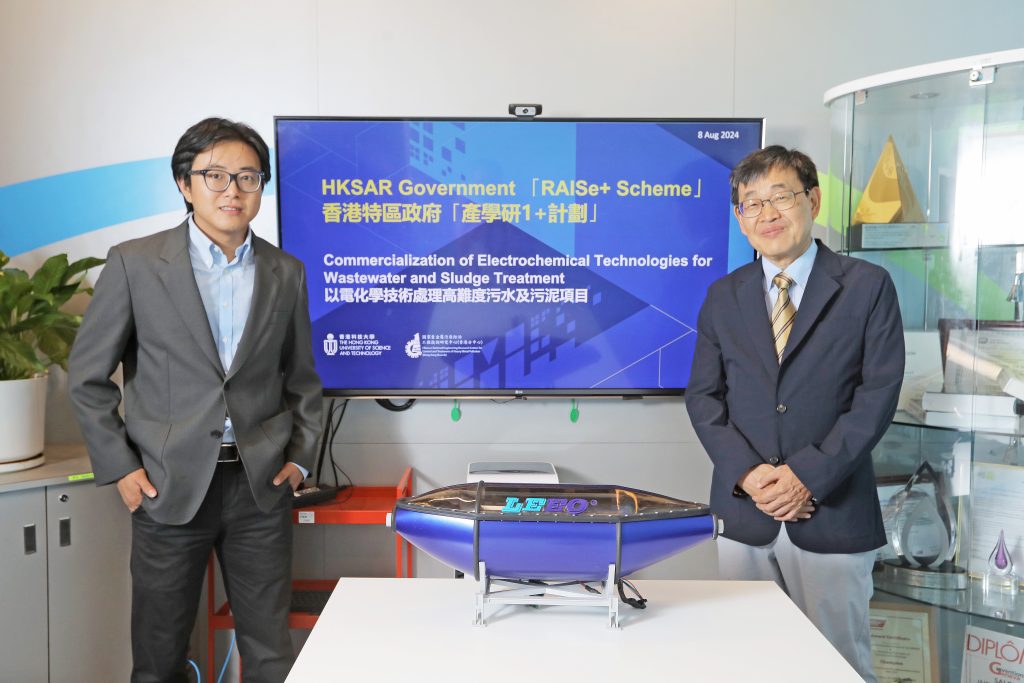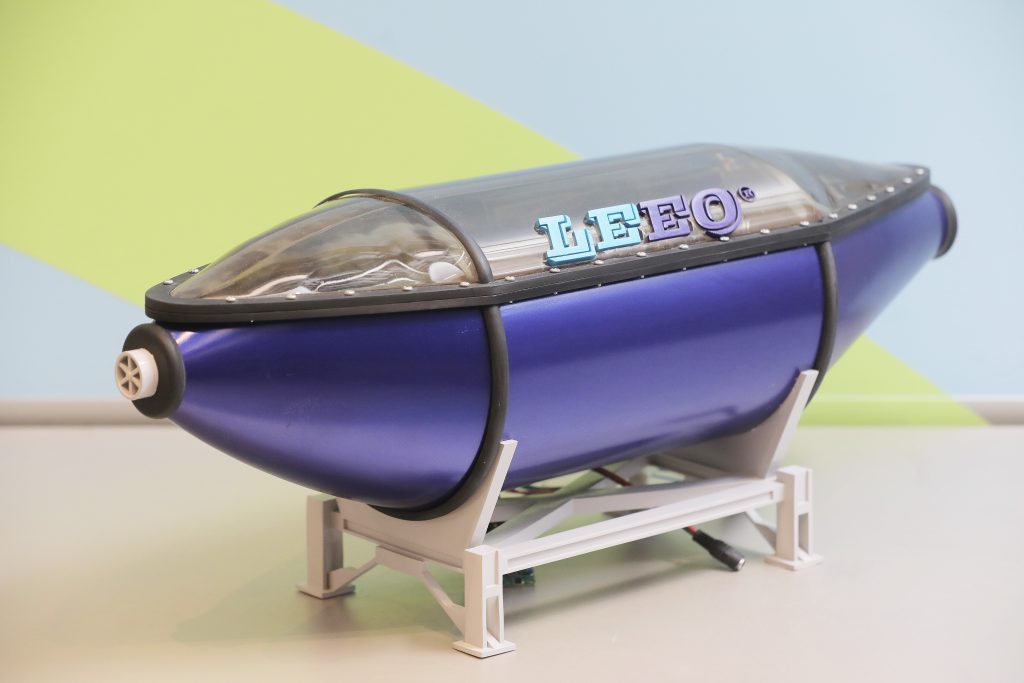
[ad_1]
originalPublished in Hong Kong Economic Times Financial NewsEJ Tech Innovation Lab“
The research team of the Department of Civil and Environmental Engineering of the Hong Kong University of Science and Technology has developed two electrochemical-basedPatented TechnologyLEEO and ECO can be used to treat difficult sewage and sludge, or can provide efficient and low-cost solutions for food production companies.
Guan Dao, one of the project team members, said that in simple terms, the core technologies of the two patents both generate some oxidative free radicals by passing electricity, and then use the free radicals to oxidize pollutants in the water. The principle is not too difficult to understand, but it is very different from traditional treatment methods.
Director Guan mentioned that during the sewage treatment process, sludge will be produced and needs to be incinerated. However, sludge is not “incinerated immediately after it is produced”. Due to various factors such as transportation, it takes about 5 days from production to incineration. The climate in Hong Kong is warm all year round, and sludge is prone to produce toxic gas hydrogen sulfide, which not only smells bad, but is also harmful to the human body.

LEEO inhibits hydrogen sulfide from the source
HKUST Chair Professor of Civil and Environmental Engineering who led the researchChen GuanghaoIn addition, the traditional method of suppressing odor by continuously adding chemicals is not a permanent solution. LEEO technology suppresses the production of hydrogen sulfide through electrochemical means, which can directly solve the source of odor without adding chemicals and solve the problem once and for all. This is why the cost of LEEO is only one-fifth of the existing technology.
Director Guan said frankly that the common problem of many current pollutant treatment technologies is that they “do not solve the pollution problem, but only turn one pollution problem into another smaller pollution problem.” He believes that it is difficult to define whether chemicals are harmful from an environmental perspective, but secondary products that have been added with chemical drugs often require special treatment, which is equivalent to solving a pollution problem but generating new pollutants.

ECO equipment is small and suitable for the food industry
When talking about wastewater treatment in food production enterprises, Chen Guanghao said frankly that it is difficult for the catering industry to completely solve the sewage treatment problem independently. He recalled that he had contacted a large catering group many years ago to discuss sewage treatment methods, but faced with space and cost constraints, he ultimately failed.
Guan said that it was not convenient to comment on the operation of individual businesses, but according to the team’s understanding, the government only requires food production companies to initially treat wastewater, and downstream sewage treatment plants are the final gatekeepers. He said that many large production companies have their own sewage treatment equipment, and lack of space is still the biggest limitation.
Another patented technology of the team, ECO, is currently mainly used to solve the problem of landfill leachate. Guan further explained that ECO combines electrochemical and photochemical technologies to target organic pollutants that are difficult to degrade with traditional processes. He emphasized that ECO is low-carbon and has a fast processing speed, which helps to reduce the size of the equipment. Guan pointed out that it has been observed that some countries or regions will concentrate food production enterprises in industrial parks, and the parks will provide unified sewage treatment services. However, whether Hong Kong will adopt a similar solution in the future remains unknown.
Interview and article by: Zhou Yongtong
Support EJ Tech


If you want to submit articles, report information, issue press releases or interview notices,Click here to contact us.
//
[ad_2]
Source link

